The world of real estate investment is undergoing a significant transformation, thanks to blockchain technology. Traditional property investment has always been a lucrative avenue, but it often comes with barriers such as high entry costs, complicated legal frameworks, and lengthy transaction times. Enter tokenized real estate, an innovative concept that promises to simplify property investments and make them more accessible to a broader audience. In this blog post, we’ll explore what tokenized real estate is, how it works, and why it might just be the future of property investment.
What Is Tokenized Real Estate?
Tokenized real estate refers to the process of converting physical property ownership into digital tokens that represent shares of that property. These tokens are built on blockchain technology, ensuring transparency, security, and ease of transfer. By tokenizing real estate, the asset is divided into smaller, tradable portions, allowing investors to buy and sell fractions of properties, much like buying and trading stocks on a stock exchange. This offers individuals the chance to invest in high-value properties without the need for large upfront capital.
In simple terms, tokenized real estate enables fractional ownership. Instead of needing a large sum of money to purchase an entire property, investors can buy tokens that represent smaller portions of a property’s value. For example, an investor could buy 1% of a multi-million-dollar property instead of having to purchase the entire building. This opens up real estate investing to a much larger pool of potential investors.
How Does Tokenized Real Estate Work?
Tokenized real estate works by using blockchain technology to create digital representations of real estate assets. The ownership of these tokens corresponds to a share of the underlying property. Once the property is tokenized, it is recorded on a blockchain, which is a decentralized digital ledger that securely tracks transactions. Blockchain ensures that the transaction history is transparent and cannot be altered, creating a secure and tamper-proof record of ownership.
The process begins with a real estate asset, such as a commercial or residential property, being evaluated and valued. Once the value is established, the property is split into digital tokens, each representing a fraction of ownership. These tokens are then sold to investors, who can buy them through various platforms that specialize in tokenized real estate offerings. Investors can trade or sell their tokens as they see fit, providing liquidity in a traditionally illiquid market.
The Benefits of Tokenized Real Estate
One of the most significant benefits of tokenized real estate is the democratization of property investment. Traditionally, real estate investment has been the domain of high-net-worth individuals and institutional investors due to the large capital required. With tokenized real estate, however, individuals can invest in properties for as little as a few hundred dollars. This opens up the market to a global pool of investors, breaking down barriers and providing opportunities for those who otherwise might not have been able to participate in the real estate market.
Another key advantage is liquidity. Real estate has long been known for its illiquid nature, with properties taking months or even years to sell. Tokenized real estate, on the other hand, allows for the quick sale of tokens, offering investors an exit strategy when they need it. The tokens can be traded on secondary markets, providing much-needed liquidity in what is traditionally a slow-moving industry.
Additionally, tokenized real estate can make transactions faster and more efficient. The traditional property buying process involves paperwork, legal reviews, and lengthy negotiations. With tokenized real estate, the entire process can be streamlined using smart contracts, which automatically execute transactions once certain conditions are met. This reduces the need for intermediaries and cuts down on costs, making the process more affordable for investors.
Challenges and Considerations of Tokenized Real Estate
Despite its many advantages, tokenized real estate is not without its challenges. One of the primary concerns is regulation. The real estate industry is heavily regulated in many countries, and tokenized real estate is still a relatively new concept. The regulatory framework for tokenized assets is still being developed, and investors need to be cautious about the legal implications of investing in tokenized real estate.
Another challenge is the volatility of the cryptocurrency market. While tokenized real estate is often tied to physical property, the value of the tokens themselves can fluctuate, especially if they are traded on cryptocurrency exchanges. This means that investors may face price swings that are outside their control, which could impact their returns.
Security is also a critical concern in the world of tokenized real estate. Blockchain technology is known for its security features, but there are still risks involved, particularly if investors do not store their tokens in secure wallets or use platforms that lack proper security protocols. It’s essential for investors to do their due diligence and choose reputable platforms to minimize the risk of fraud or theft.
The Role of Blockchain in Tokenized Real Estate
At the heart of tokenized real estate is blockchain technology, which is transforming how real estate transactions are conducted. Blockchain offers several key benefits that traditional real estate transactions lack. First and foremost, it provides transparency. Every transaction made on a blockchain is recorded and can be publicly verified, ensuring that the process is open and free from corruption or manipulation.
Blockchain also improves security. The decentralized nature of blockchain makes it difficult for hackers to alter transaction records, and the use of encryption adds another layer of protection. This is particularly important when it comes to high-value assets like real estate, where the risks of fraud are significant.
Moreover, blockchain enables the creation of smart contracts. These self-executing contracts automatically enforce the terms of an agreement without the need for intermediaries. In the case of tokenized real estate, smart contracts can facilitate the buying and selling of tokens, ensuring that transactions are completed quickly, securely, and without the need for a third party.
Who Can Invest in tokenized real estate?

One of the key selling points of tokenized real estate is that it opens up property investment to a wider range of people. Traditionally, real estate investment has been limited to wealthy individuals or institutional investors who can afford the large sums of capital required. Tokenized real estate, however, allows anyone with access to the internet and a small amount of capital to participate.
For example, a retail investor may have $1,000 to invest. In traditional real estate, this amount wouldn’t be enough to purchase even a fraction of a property. With tokenized real estate, that same investor could potentially invest in a high-value property by purchasing tokens that represent a share of ownership. This lower barrier to entry is attracting a more diverse group of investors, including millennials, international buyers, and those with limited access to traditional investment vehicles.
The Future of Tokenized Real Estate
While tokenized real estate is still in its early stages, its potential for the future is enormous. As the technology matures and regulatory frameworks are established, it’s likely that tokenized real estate will become a mainstream investment option. The benefits of tokenization—such as fractional ownership, liquidity, and efficiency—are too significant to ignore, and they address many of the pain points associated with traditional property investing.
One of the most exciting prospects for the future of tokenized real estate is the possibility of tokenizing global markets. Currently, most tokenized real estate projects are based in specific countries or regions. However, as the market grows, it’s possible that tokenized real estate could create a global marketplace, allowing investors to buy and sell shares of properties from all over the world. This would significantly broaden investment opportunities and offer exposure to different real estate markets that may have previously been inaccessible.
Conclusion
Tokenized real estate is undoubtedly an exciting development in the world of property investment. By leveraging blockchain technology, tokenized real estate allows for fractional ownership, increased liquidity, and faster, more efficient transactions. It also democratizes real estate investment, making it accessible to a broader range of investors. While challenges such as regulation and security remain, the potential benefits of tokenized real estate are hard to ignore.
As the market continues to evolve and gain traction, tokenized real estate could very well become the future of property investment, offering new opportunities for both seasoned investors and newcomers alike. Whether you’re looking to diversify your portfolio or enter the real estate market for the first time, tokenized real estate offers a unique and innovative way to invest in one of the world’s most valuable asset classes.


